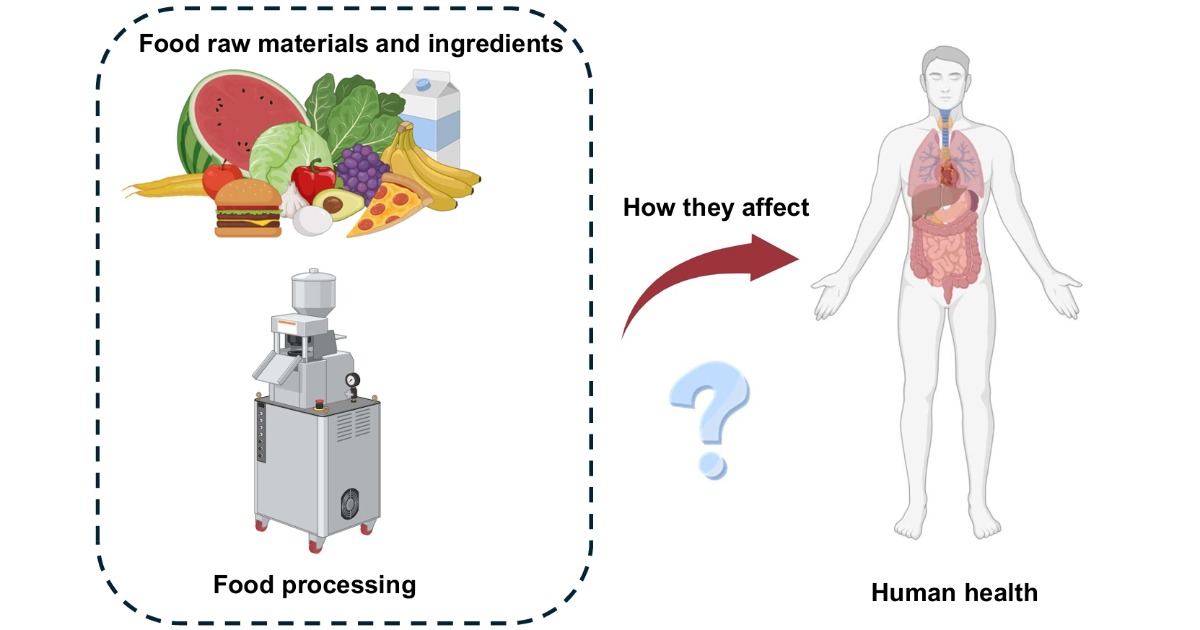Food Functional Factors and Nutritional Health
A special issue of Nutrients (ISSN 2072-6643). This special issue belongs to the section "Nutrition and Public Health".
Deadline for manuscript submissions: 25 March 2026 | Viewed by 3036

Special Issue Editors
Interests: food nutrition and functional factors; metabolic health; processed foods; active peptides; food processing and extraction
Special Issues, Collections and Topics in MDPI journals
Interests: gut nutrition and diseases; probiotics and prebiotics; microbiota; immunity; special medical foods
Special Issues, Collections and Topics in MDPI journals
Special Issue Information
Dear Colleagues,
We are pleased to announce the upcoming Special Issue entitled "Food Functional Factors and Nutritional Health", which will focus on the impact of processing on the functional components of foods and the key role of food composition changes in how they affect human wellness, emphasizing the relationship between processing, components, and health.
Topics of interest for this Special Issue include, but are not limited to, the following:
- Biological activities and health benefits of chemicals, vitamins, minerals, proteins, bioactive peptides, and dietary fibers found in functional foods or medicine–food homology.
- The mechanisms by which probiotics, prebiotics, and synbiotics in functional foods modulate the human microbiome and contribute to nutritional health and disease resistance.
- The role of functional foods and factors in addressing nutrient deficiencies and promoting optimal health across different life stages and populations.
- Nutrient–gene interactions and their implications for personalized nutrition in the prevention and management of chronic conditions, including enhancive or protective effects against metabolic syndrome, diabetes, cardiovascular diseases, and other non-communicable diseases.
We invite submissions of original research articles, review papers, and meta-analyses that provide new insights, methodologies, or comprehensive reviews concerning the connections between food functional factors and nutritional health. We encourage contributions from a mix of disciplines, including food science and technology, nutrition science, nutrigenomics, public health, pharmacology, chemistry, and other related fields. By assembling the collection of multidisciplinary research, we aim to foster a deeper understanding of the nutritional virtues of functional foods and their significance in public health, as well as hope this Special Issue will catalyze more research and innovation in the field of food science and nutrition.
Prof. Dr. Guowei Le
Dr. Bowen Li
Guest Editors
Manuscript Submission Information
Manuscripts should be submitted online at www.mdpi.com by registering and logging in to this website. Once you are registered, click here to go to the submission form. Manuscripts can be submitted until the deadline. All submissions that pass pre-check are peer-reviewed. Accepted papers will be published continuously in the journal (as soon as accepted) and will be listed together on the special issue website. Research articles, review articles as well as short communications are invited. For planned papers, a title and short abstract (about 100 words) can be sent to the Editorial Office for announcement on this website.
Submitted manuscripts should not have been published previously, nor be under consideration for publication elsewhere (except conference proceedings papers). All manuscripts are thoroughly refereed through a single-blind peer-review process. A guide for authors and other relevant information for submission of manuscripts is available on the Instructions for Authors page. Nutrients is an international peer-reviewed open access semimonthly journal published by MDPI.
Please visit the Instructions for Authors page before submitting a manuscript. The Article Processing Charge (APC) for publication in this open access journal is 2900 CHF (Swiss Francs). Submitted papers should be well formatted and use good English. Authors may use MDPI's English editing service prior to publication or during author revisions.
Keywords
- biological activities
- functional foods
- microbiome
- health conditions
- personalized nutrition
Benefits of Publishing in a Special Issue
- Ease of navigation: Grouping papers by topic helps scholars navigate broad scope journals more efficiently.
- Greater discoverability: Special Issues support the reach and impact of scientific research. Articles in Special Issues are more discoverable and cited more frequently.
- Expansion of research network: Special Issues facilitate connections among authors, fostering scientific collaborations.
- External promotion: Articles in Special Issues are often promoted through the journal's social media, increasing their visibility.
- e-Book format: Special Issues with more than 10 articles can be published as dedicated e-books, ensuring wide and rapid dissemination.
Further information on MDPI's Special Issue policies can be found here.







